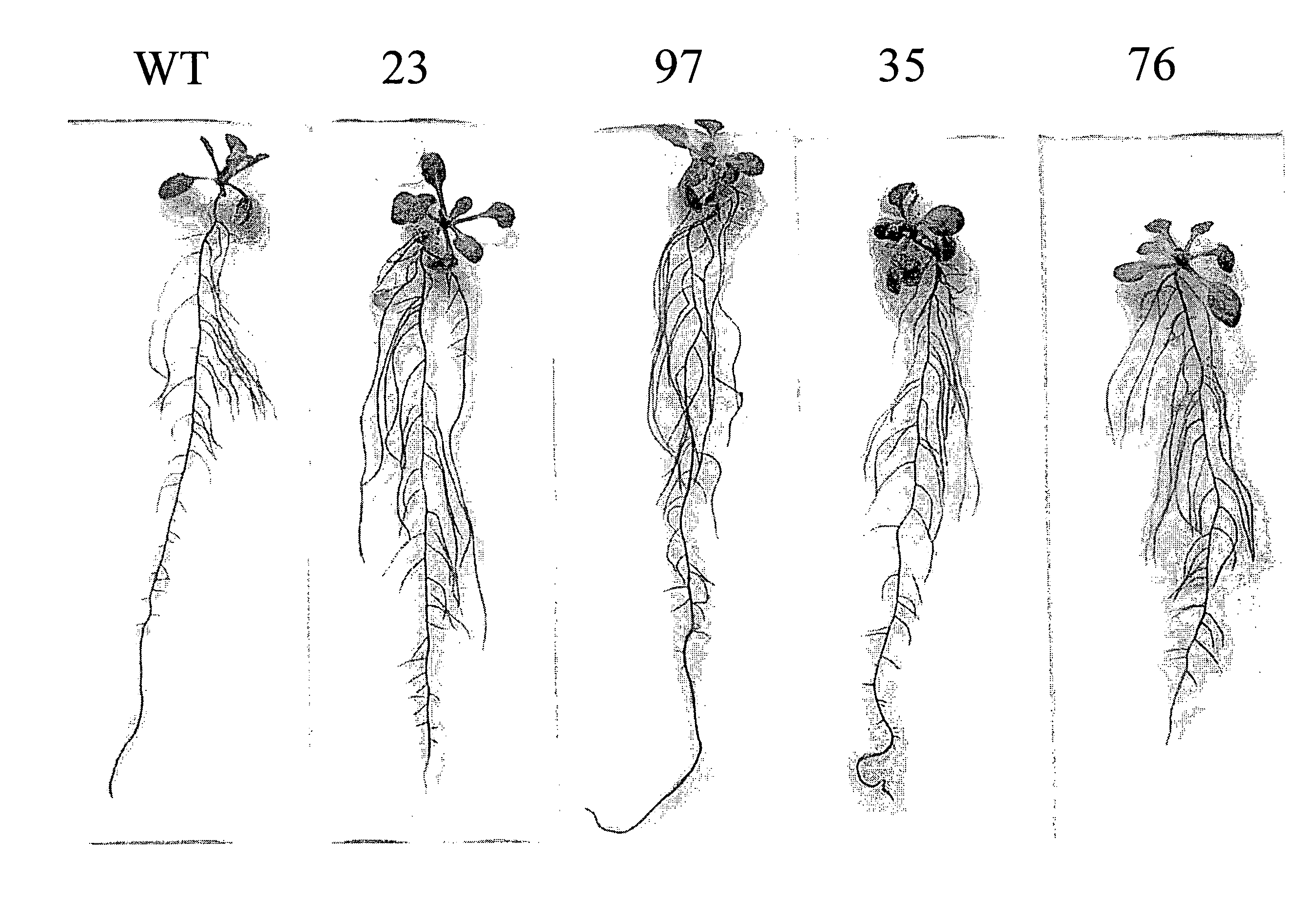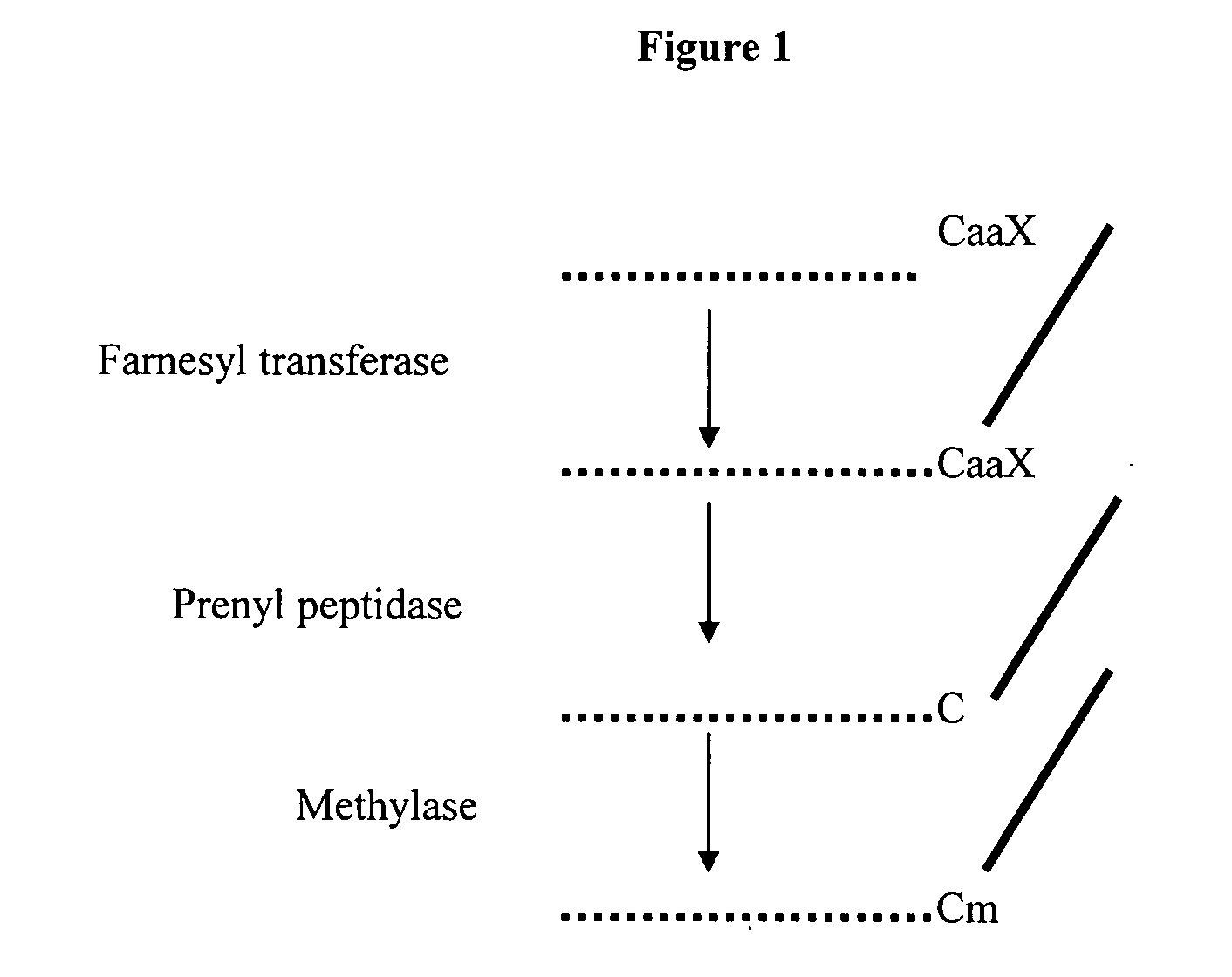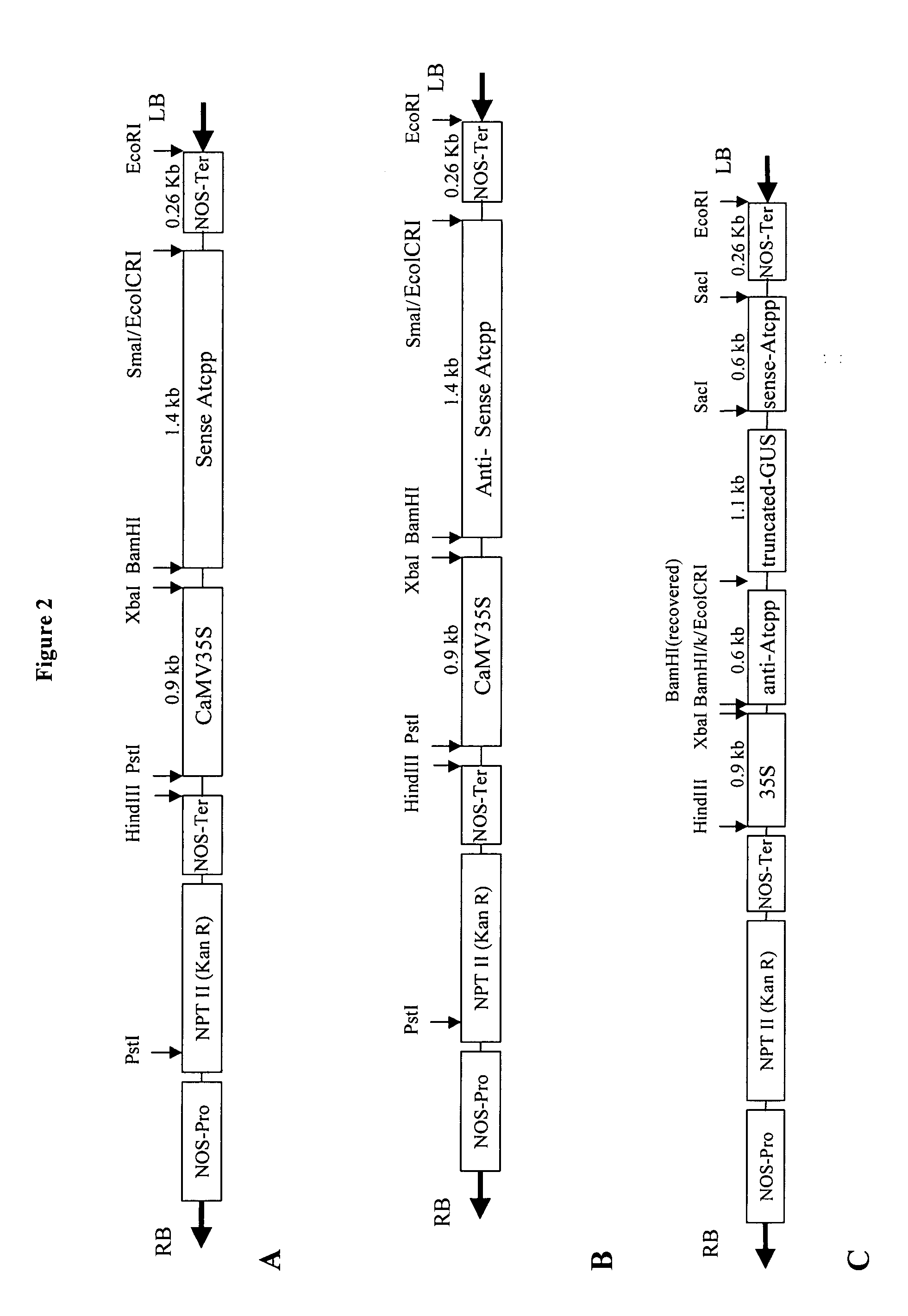Polynucleotides encoding plant prenyl proteases
a plant prenyl protease and polypeptide technology, applied in the field of polypeptides encoding plant prenyl proteases, can solve the problems of crop and yield loss, food shortage, drought, etc., and achieve the effect of increasing tolerance to environmental stress
- Summary
- Abstract
- Description
- Claims
- Application Information
AI Technical Summary
Benefits of technology
Problems solved by technology
Method used
Image
Examples
example 1
Growth of Physcomitrella patens Cultures
[0296] For this study, plants of the species Physcomitrella patens (Hedw.) B.S.G. from the collection of the genetic studies section of the University of Hamburg were used. They originated from the strain 16 / 14 collected by H.L.K. Whitehouse in Gransden Wood, Huntingdonshire (England), which was subcultured from a spore by Engel (1968, Am J Bot 55, 438-446). Proliferation of the plants was carried out by means of spores and by means of regeneration of the gametophytes. The protonema developed from the haploid spore as a chloroplast-rich chloronema and chloroplast-low caulonema, on which buds formed after approximately 12 days. These grew to give gametophores bearing antheridia and archegonia. After fertilization, the diploid sporophyte with a short seta and the spore capsule resulted, in which the meiospores mature.
[0297] Culturing was carried out in a climatic chamber at an air temperature of 25° C. and light intensity of 55 micromol s−1m−2...
example 2
Isolation of Total RNA and poly-(A)+ RNA and cDNA Library Construction from Physcomitrella patens
[0299] For the investigation of transcripts, both total RNA and poly-(A)+ RNA were isolated. The total RNA was obtained from wild-type 9 d old protonemata following the GTC-method (Reski et al. 1994, Mol. Gen. Genet., 244:352-359).
[0300] The Poly(A)+ RNA was isolated using Dyna Beads® (Dynal, Oslo, Norway) following the instructions of the manufacturer's protocol. After determination of the concentration of the RNA or of the poly(A)+ RNA, the RNA was precipitated by addition of 1 / 10 volumes of 3 M sodium acetate pH 4.6 and 2 volumes of ethanol and stored at −70 degree C.
[0301] RNA preparation from Arabidiopsis seeds—“hot” extraction:
1. Buffers, Enzymes and Solutions
[0302] 2M KCl [0303] Proteinase K [0304] Phenol (for RNA) [0305] Chloroform:Isoamylalcohol [0306] (Phenol:choloroform 1:1; pH adjusted for RNA) [0307] 4 M LiCl, DEPC-treated [0308] DEPC-treated water [0309] 3M NaOAc, pH ...
example 3
Sequencing and Function Annotation of Physcomitrella patens ESTs
[0328] cDNA libraries as described in Example 2 were used for DNA sequencing according to standard methods, in particular by the chain termination method using the ABI PRISM Big Dye Terminator Cycle Sequencing Ready Reaction Kit (Perkin-Elmer, Weiterstadt, Germany). Random Sequencing was carried out subsequent to preparative plasmid recovery from cDNA libraries via in vivo mass excision, retransformation, and subsequent plating of DH10B on agar plates (material and protocol details from Stratagene, Amsterdam, Netherlands. Plasmid DNA was prepared from overnight grown E. coli cultures grown in Luria-Broth medium containing ampicillin (see Sambrook et al. (1989) (Cold Spring Harbor Laboratory Press: ISBN 0-87969-309-6)) on a Qiagene DNA preparation robot (Qiagen, Hilden) according to the manufacturers protocols. Sequencing primers with the following nucleotide sequences were used:
Qiagen1:5′-CAGGAAACAGCTATGACC-3′(SEQ ID...
PUM
| Property | Measurement | Unit |
|---|---|---|
| pH | aaaaa | aaaaa |
| Tm | aaaaa | aaaaa |
| temperature | aaaaa | aaaaa |
Abstract
Description
Claims
Application Information
 Login to View More
Login to View More - R&D
- Intellectual Property
- Life Sciences
- Materials
- Tech Scout
- Unparalleled Data Quality
- Higher Quality Content
- 60% Fewer Hallucinations
Browse by: Latest US Patents, China's latest patents, Technical Efficacy Thesaurus, Application Domain, Technology Topic, Popular Technical Reports.
© 2025 PatSnap. All rights reserved.Legal|Privacy policy|Modern Slavery Act Transparency Statement|Sitemap|About US| Contact US: help@patsnap.com



